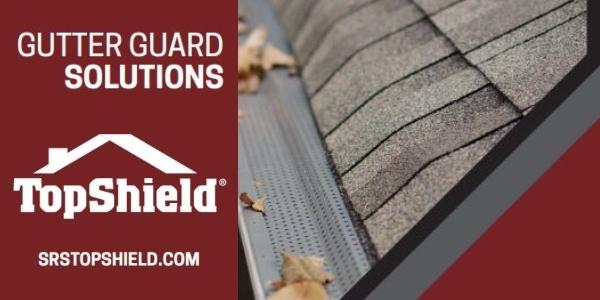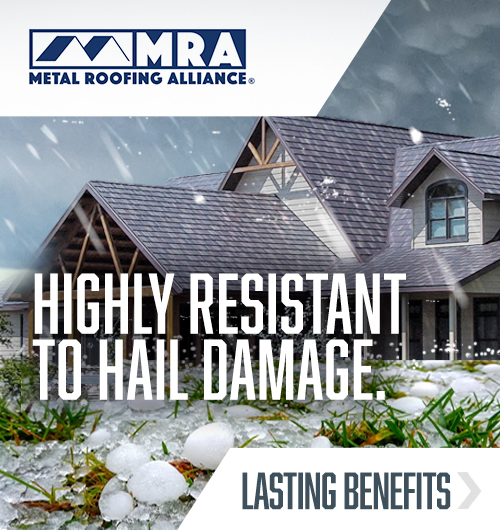The Secret to Finding The Best Contractor for the Job

By Trevor Underwood, DECRA Metal Roofing.
Why you should get your roof inspected before and after it is installed and what to look for in a contractor.
A roof inspection might seem like an obvious big step in the process of finding a roofing contractor, but it is often overlooked. Scheduling an inspection with an independent roof inspector can ensure an unbiased evaluation of the scope of the job and the general state of your roof.
Getting an inspection before and after the installation can help ensure the quality of your roof. The national average cost of a roof inspection is around $200, which is well worth the expense to know that your new roof was installed properly.
Today’s roof inspectors rely on high-tech tools, such as drones and infrared sensors that detect leakage and damage points in the roof by precise variations in temperature. These advanced techniques can reveal hard-to-detect, but common problems that are much easier to fix when detected early.
For example, a roof inspection may reveal leakage around the chimney where flashing has separated away from the brick. Since the leakage was detected early, flashing repair can be included as part of the overall project and roofing contractors can adjust their bids to plan accordingly.
If something like this is missed, the new installation won’t correct the chimney leakage problem and conflicts can quickly arise between homeowners and roofing contractors about who exactly is responsible.
In cases of insured storm damage repairs and new construction, many insurance companies and lenders will require a roof inspection. Even when it’s not mandatory, a roof inspection can provide peace of mind for everyone involved in the roofing project.
Note: To avoid any undue influence, DECRA Metal Roofing cannot provide a list of preferred roofing inspectors. We can, however, point you to reputable roofing inspectors and certification services that are readily available through the National Roof Certification and Inspection Association (NRCIA).
After securing a roof inspection, you’ll want to look for a roofing contractor with the following traits.
What to look for in a roofing contractor
Experience
The keyword here is “experience.” Even the best roofing materials are no guarantee of satisfaction against shoddy workmanship.
To mitigate risk, you’ll want to look for a roofing contractor with a well-established business, an extensive portfolio of previous work and experience working with a variety of roofing materials.
A reputable roofing contractor will be happy to show off their previous jobs, and advise on which roofing products and installations are best suited for the individual needs of their customers. They’ll be extremely familiar with compliance to local building codes and capable of advising you on the best roofing material for your project, whether it’s a remodel, upgrade, repair or new installation.
Specialty skills
It’s important to choose your roofing contractor based on the type of roofing project you have in mind. Some roofing contractors specialize in repairs and maintenance, while others specialize in complete installations. Quite frequently, those different skill sets aren’t interchangeable.
For new construction, the roofing contractor will need experience coordinating the installation timetable with other contractors on the job and establishing with the general contractor who is responsible for overlapping work, such as installing the roof deck sheathing or any special energy-efficient underlayments specified by the architect.
References and reputability
Time spent vetting roofing contractors is time well spent. Homeowners should interview and receive bids from at least three reputable contractors.
Reputable roofing contractors shouldn’t hesitate to provide at least three references to verify the quality of their previous work and they’ll likely show up for the estimate with a portfolio of previous work under their arm.
While vetting roofing contractors, it’s smart to ask about their follow-up policy once the project is complete. Some may offer comprehensive repair services for all projects, whereas others may limit the timeframe in which they’ll offer repair services after the installation. Some contractors may refuse repairs altogether.
Due diligence tips for homeowners
Look at websites you trust that post ratings and reviews of contractors. You also can check out a contractor's online reputation by searching for their company's name with words like “scam,” “rip-off,” or “complaint.”
Additionally, you’ll want to be wary of things like extremely low bids and / or poor communication. For example, if a roofing contractor isn’t responsive during the bidding process, it’s not likely that communication will improve once the project starts.
Once you’ve selected a reputable roofing contractor some basic best business practices apply, such as establishing a firm timeline for the job progress and completion with allowances for unavoidable weather delays.
Choosing a DECRA metal roofing contractor
When choosing a contractor that installs DECRA Metal Roofing, be sure to ask questions about their experience, skillset and references. They should also be able to clearly and effectively educate you on the benefits of DECRA products, such as:
-
Design versatility and the ability to replicate nearly any traditional roofing material.
-
Durability and protection from the elements.
-
Longevity and long-term value.
-
Increasing home value and curb appeal.
-
A roof remodel that doesn’t require a complete tear-off of the existing roof.
-
The comprehensive Lifetime Limited Warranty.
Need help finding a roofing contractor in your area that installs DECRA?
Visit the DECRA Contractor Directory on RooferAdvice.com to connect with local contractors and view valuable information about their business including project photos, hours of operation, testimonials and more.
Have a question? AskARoofer.
Find your local roofing contractor in the RoofersCoffeeShop® Contractor Directory.
Original article source: DECRA










Comments
Leave a Reply
Have an account? Login to leave a comment!
Sign In